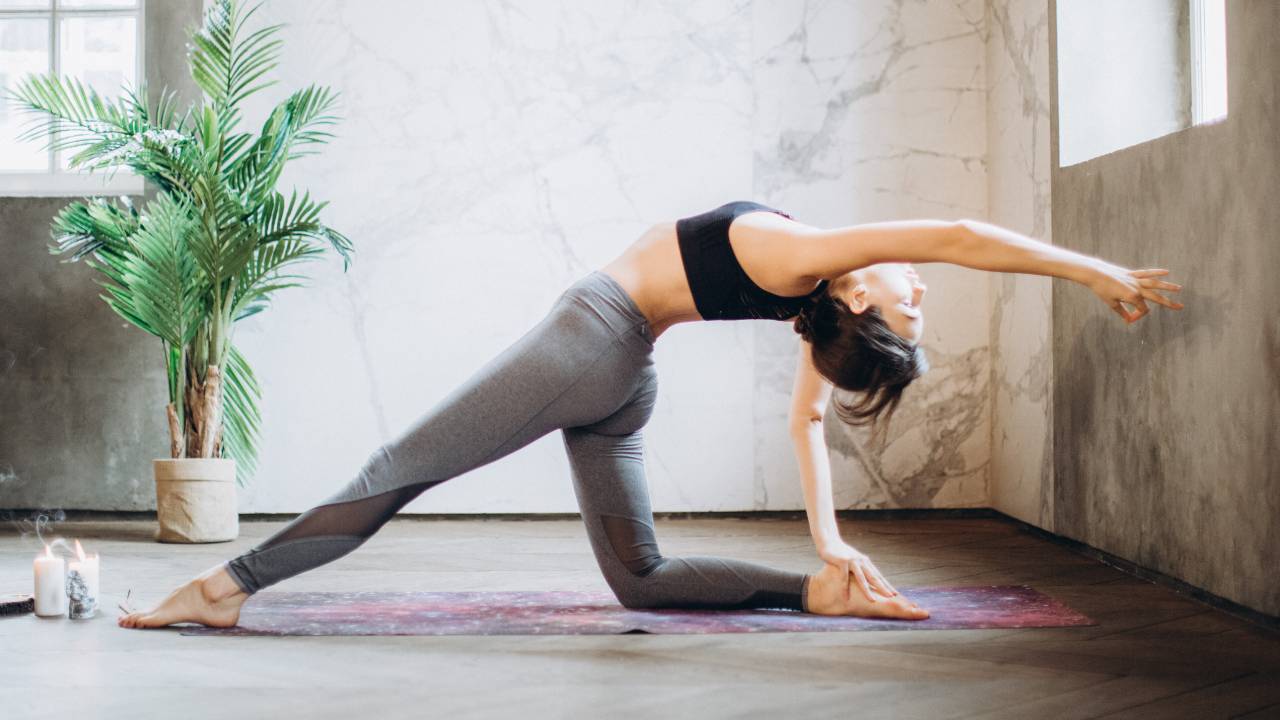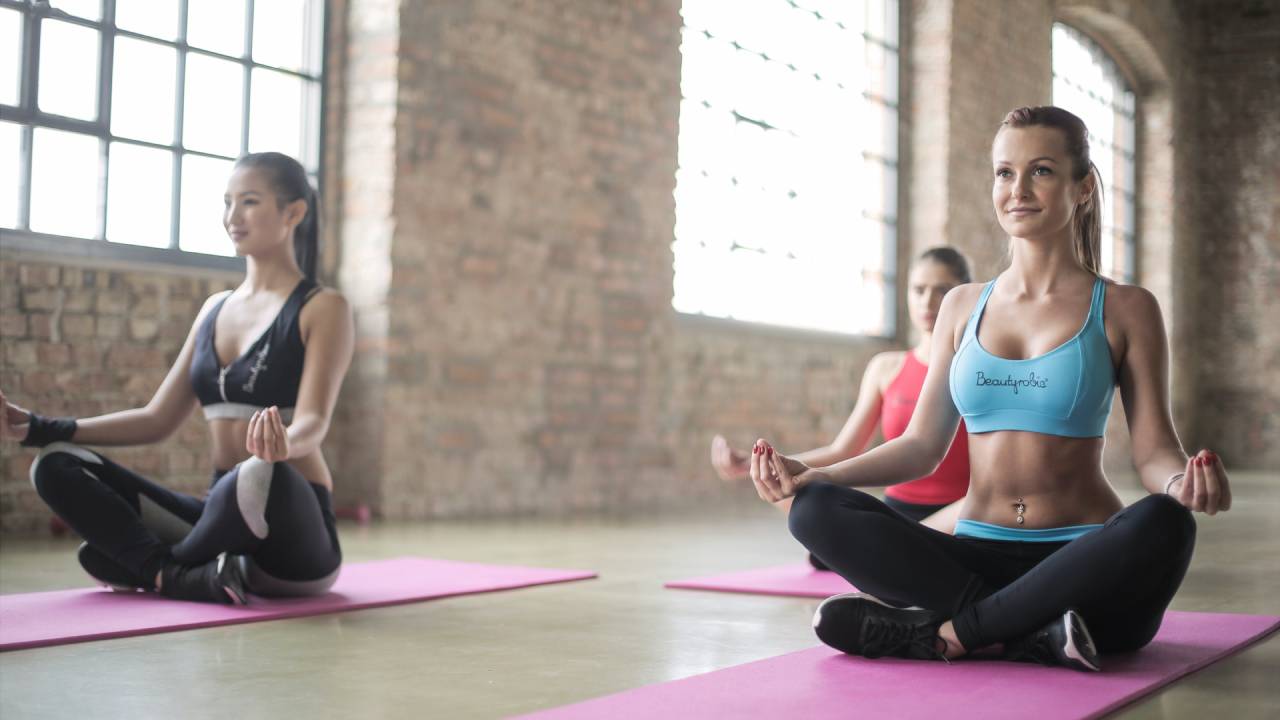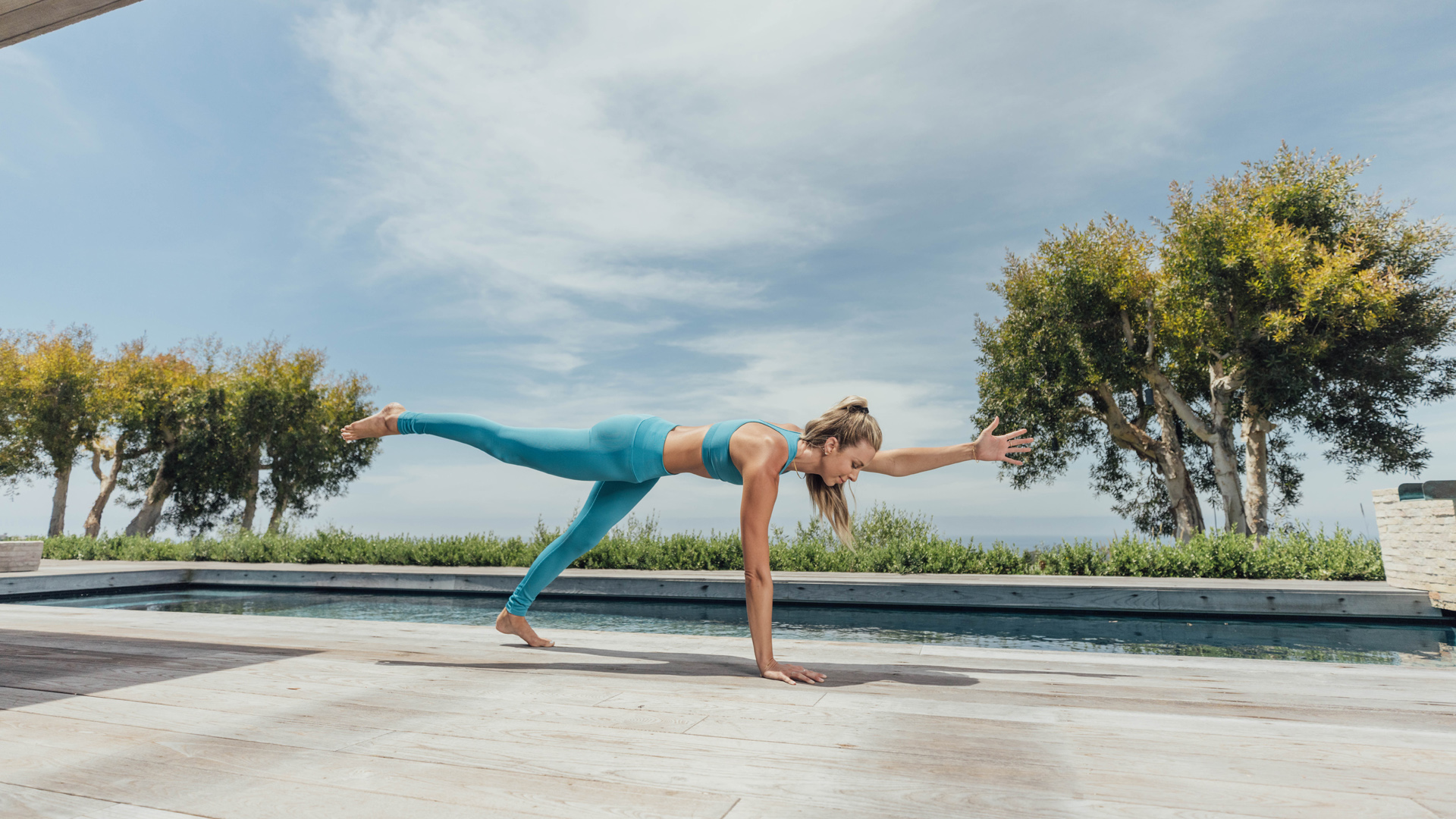
Get all the latest news, reviews, deals and buying guides on gorgeous tech, home and active products from the T3 experts
You are now subscribed
Your newsletter sign-up was successful
On the whole, yoga isn’t known for its effect on weight. Yoga tends to be linked with improving flexibility, not with how many calories you can burn in a single session. However, although the practice itself may not lead to weight loss, there are other aspects of yoga that can help you change your lifestyle and feel healthier and happier. It’s these parts of yoga that can then indirectly impact how many calories you choose to consume.
Unlike other forms of exercise, yoga’s focus is not on improving the physique of the human body. Its focus is on calming the thoughts in the mind, removing physical tension and generally making you feel at peace. Because of this, yoga is not technically a form of exercise but a spiritual practice. Therefore, the goal of yoga is not about losing weight but a result of stilling the mind might be that positive eating habits develop.
- Get started with yoga in the best yoga pants and the best yoga mats
- Take your yoga practice to the next level with the best yoga blocks
Can yoga help you lose weight?
Yoga is not well known for its ability to help you burn calories. There are many different forms of yoga with some being more active than others like Ashtanga, for example, which moves through a dynamic sequence of yoga poses leading you to get a bit sweaty. Other practices like Yin Yoga are very slow, holding a single posture for anywhere between 3-5 minutes (or longer if you fancy!) The more active styles of yoga, when practised regularly and intensely, may help you to lose some weight but it shouldn’t be relied upon as a way to manage weight loss.
Some research has shown that yoga can actually slow the basal metabolic rate down. This can lead to you gaining weight if you don’t take in fewer calories with yoga as a regular part of your routine. A study published in 2006 in BMC Complementary and Alternative Medicine found the metabolic rate was reduced by 13% for those practising yoga compared to those who didn’t. Lead author M. S. Chaya noted that the physiological slowing down from yoga, “creates a propensity for weight gain and fat deposition”. The study highlighted that the reduction in the basal metabolic rate was significant enough to indicate that yoga practitioners would require fewer calories, as if they continued to eat as before, they would actually gain weight.

It’s important to mention that practicing yoga doesn’t necessarily have a direct link to weight loss but it can impact our mindset and help us build healthier habits. It’s this aspect of yoga that can help us lose weight.
Yoga has the ability to inspire change in people’s lifestyles. When we practice yoga, it creates space in our mind that we don’t normally get in today’s busy world. From this space, we can see what’s important to us and this can lead to us making those valuable changes such as eating healthier, exercising more or just being more conscious of what we choose to eat. All of these things can then lead to us losing weight.
Yoga can also increase our happiness levels as we become more content when the mind isn’t as cluttered. When we’ve had time to process things on a regular basis, we don’t hold onto anger, resentment, anxiety or stress so tightly. A happier person may then be more likely to opt for a healthier diet thus experiencing weight loss.
Get all the latest news, reviews, deals and buying guides on gorgeous tech, home and active products from the T3 experts
Can yoga help you build strength?
Yoga does have other benefits though and this can come in terms of toning muscles and building strength. Feeling fit and healthy doesn’t just come down to what is written on the scales. Fitness comes in all shapes and sizes, and sometimes it’s not our weight that gets to us but how we feel inside.
Yoga is a great way to build strength, boost confidence and feel better about your body, no matter your shape or size. When we practice yoga, it’s challenging even though the perception is quite often that there’s a lot of sitting around meditating and chanting (side note: these things should be included in a well-rounded practice) but there’s so much more to a yoga class than that. There are difficult postures, breath work to grasp, ongoing concentration and the added test of being alone with your own mind.
All of these things mean that the body and mind do get a type of workout, it might not be the workout you’re used to but they all contribute to helping us feel better about ourselves. For example, when we are working on a posture that pushes us, we need to remember to breathe (as holding the breath produces tension in the body), be present with the posture and accept its challenges for us. Physically our muscles are worked but so is our ability to be with ourselves. And when we manage for a split second to do that posture, the confidence it can give us is amazing. This can be the key to us feeling happier in our own skin, not reducing the number on the scales.

Does yoga have any other benefits?
The response to this question is the usual ‘it improves flexibility’ and it definitely does do this. However, this isn’t the only other benefit to yoga. Yoga can improve mental health and sleep too.
People that practice yoga tend to report that they feel less anxious and sleep better. For some people, this may be that they get to sleep quicker as their mind feels less busy. For others, it might be that they get a longer night’s sleep and so feel more rested the next day.
In terms of mental health, yoga can help to reduce symptoms of anxiety and stress. This can be due to the breathing in a yoga practice which calms the nervous system down. This, paired with the need to be fully present, means we can experience what’s happening in our body as we move through the postures. We build a stronger mind-body connection and this can help people to recognise when they feel anxious or stressed and implement coping mechanisms to help them manage.
Kat has 10 years of yoga teaching experience with further training in supporting injured students. She is qualified to teach Yin Yoga, Hormone Yoga Therapy and more traditional forms of Hatha yoga. She also has a certificate as a Yoga Therapy Practitioner.